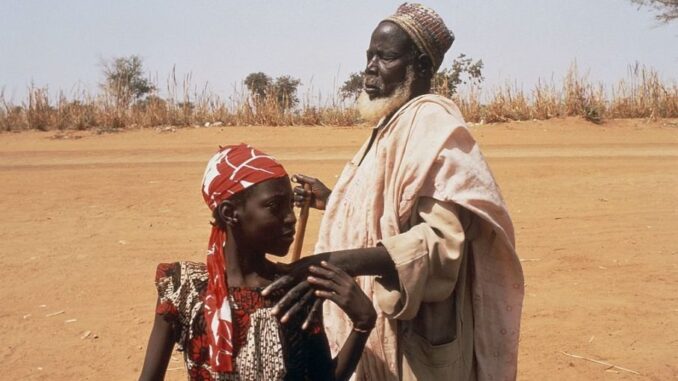
In a situation whereby 700 ophthalmologists are saddled with responsibility to care for the eyes of more than 200 million Nigerians, it is hardly surprising that over 4.25 million adults in Nigeria, aged 40 and above, suffer from moderate to severe visual impairment or blindness. At present, available evidence suggest that over 2.2 billion people are visually impaired; and ophthalmologists have warned that the number of people with vision loss is expected to rise from 1.1 billion in 2022 to 1.7 billion by 2050, adding that ageing populations and increased prevalence of non-communicable diseases (NCDs), such as diabetes, could exacerbate eye health issues in years to come. In a country battling with severe shortfall in primary health care, this scenario is worrisome and potentially devastating. Beyond the crucial need to sensitise the populace on vagaries of eye care, government at all levels have a wholesome duty to make the care of the eye accessible to Nigerians, majority of who cannot afford the required expenses.
Reports of study done on the issue also say that cataract, glaucoma, and uncorrected refractive errors are the leading causes of blindness. These eye health issues are exacerbated by ageing populations, increased prevalence of non-communicable diseases (NCDs), and long gadget use. With the continuous rise in digital media consumption, especially among the youth, the incidence of ocular problems has also dramatically increased. Many children currently use display terminals for computer-aided instruction, cellular and smart phones and video games, as well as increased television viewing. In particular, android phones, led TVs and computers, emit lights that can adversely cause problems in the eyes.
Staring at a screen (phone, computer, laptop, pad, gaming devices) for long stretches without taking breaks can cause symptoms such as eye fatigue, especially where lighting is less than ideal, causing fatigue from squinting. Thus, longer hours (over four hours/day) spent on smartphone use may increase the likelihood of ocular symptoms such as eyestrain or ocular fatigue; and ocular surface disease, especially in children. Other risk factors associated with increased prevalence of blurred vision include longer daily reading hours, lack of physical activity and less time spent outdoors.
In particular, eye care is not accessible, available and affordable to every Nigerian, partly due to the highly specialised nature of the sector and because many of the highly skilled eye care workers, particularly ophthalmologists, are leaving Nigeria for other countries, where there is adequate technology and better remuneration. Thus, Nigeria has 700 ophthalmologists to 200 million people against the World Health Organisation’s (WHO) recommendation of one ophthalmologist for 50,000 people in developing countries.
On cure and management, while cataract which is the leading cause of blindness is reversible; glaucoma is irreversible. Glaucoma is silent and gives no sign until it is too late. As such, by the time an individual notices such vision impairment it would have degenerated and too late to reverse. Again, natural eye drops only clear immature cataracts but are not very effective in patients with uncontrolled diabetes mellitus. This outlook is alarming because of the sensitive and high utility of the eyes, which allow people to navigate through the world and avoid things that may harm people.
In spite of this, millions of people remain at risk of vision loss due to poor awareness, non-chalance towards eye care and poor health-seeking behaviour; the average Nigerian does not seriously react until there are vision changes, pain or itching before going for an eye check. Yet, based on the United Nations Resolution on Vision for Everyone and World Health Organisation action plan for the prevention of avoidable blindness and visual impairments, over 80 per cent of global visual impairment is avoidable (that is preventable or treatable). This, in fact, is the significance of World Sight Day (WSD), marked yearly to raise awareness about retinal diseases and care of the eyes; support Sightsaver’s work to combat avoidable blindness; and prompt people to prioritise their eye health sometimes with changes in life style.
Thus, to prevent ocular and visual symptoms, individuals are advised to use protective screen shields and UV-protecting lenses/sunshades; regulate the time used on electronic gadgets; and restrict the prolonged use of smartphones. It is also important that people with high blood pressure, diabetes and sickle cell diseases go for health checks often and regularly; and eat balanced diets for good vision maintenance.
For academics, researchers, media personnel and top executives who spend long hours daily reading, less time outdoors and are sedentary workers, it is important to moderate and take short breaks while at work. Employers should have mandatory periodic vision screening as part of mandatory annual health check.
Specifically on children, prevention can be achieved if school eye health services are included and made compulsory in health screening for pre, junior, senior and tertiary schools. At the family level, children should spend more time outdoors to reduce the prevalence and progression of blurred vision. In addition, government should prioritise healthcare in Nigeria and aim to achieve universal eye health coverage in the country through effective planning and development of the human resources sector to boost eye-care services in rural communities, scale up awareness at both rural and urban areas.
It is equally important that basic eye care training should be provided to relevant human resources such as teachers for school eye health, family physicians, paediatricians, midwives, nurses, immunisation workers and other primary healthcare workers for early detection and referral of eye problems in the community with appropriate linkages developed with specialist eye care units and department that will improve access to eye care services.
Also, appropriate, affordable and accessible refraction and surgical services should be provided; and there should be aggressive sensitisation to ginger individuals to prioritise their eye health and regularly go for vision screenings, because sight is precious. Government at all levels should encourage non-governmental organisations sponsoring and undertaking eye care and surgeries for indigent Nigerians.
END

Be the first to comment